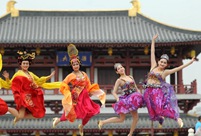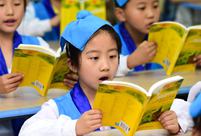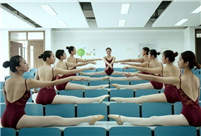

BEIJING/HONG KONG, June 18 -- Hong Kong legislative council on Thursday vetoed a motion of the proposed universal suffrage for selection of the region's next chief executive.
A total of 28 lawmakers of the legislative council (LegCo) voted against the motion, which failed to reach the two-thirds majority in the 70-member chamber.
It means that in 2017 the fifth chief executive of the Hong Kong Special Administrative Region (HKSAR) will be selected by the election committee as before.
Chief Executive Leung Chun-ying said at a press conference after the veto that 28 LegCo members voted against the wishes of the majority of Hong Kong people.
"I, the Hong Kong government and millions of Hong Kong people are naturally disappointed," said the Chief Executive.
For the past 20 months, the central government, Hong Kong government and the whole community have put in great deal of time and effort to reach a consensus on Hong Kong's constitutional development, Leung added.
Leung said the electoral reform conformed to the HKSAR Basic Law and the decision of China's top legislature. It is the best arrangement according to the situation of Hong Kong.
Various public polls showed that a majority of Hong Kong citizens were in favor of universal suffrage and approved of the electoral reforms.
"It is time for the community to move on, and in the coming two years, the Hong Kong government will focus on economic development and people's livelihood issues," said Leung. "The civil service will continue to serve the public with devotion and professionalism."
The Hong Kong and Macao Affairs Office of the State Council on Thursday said the result ran counter to the mainstream opinion of Hong Kong society and is not an outcome the central government is willing to see.
"A handful of Hong Kong legislators voted against the motion out of their private interests, hindering the democratic development in Hong Kong and blowing an important opportunity for Hong Kong to realize the election by universal suffrage, a result they should be held responsible for," the statement of the Office said.
It added that "we fully acknowledge and support the remarks by Hong Kong Chief Executive Leung Chun-ying and appreciate the efforts of the Hong Kong administration and people from all walks of life in promoting universal suffrage."
The Office further pledged to continue the "one country, two systems" policy, and "Hong Kong people governing Hong Kong" with a high degree of autonomy.
It also pledged to support the SAR government and chief executive, and to support the SAR government in a "lawful" and "step-wise" democratic development till the universal suffrage is realized.
The statement said, the central government ardently hoped that all social sectors of Hong Kong could unite under the leadership of the SAR government and chief executive, and concentrate on developing economy, improving people's lives and maintaining social harmony, so as to keep Hong Kong prosperous and stable in the long run.
China's top legislature said a small number of lawmakers at the SAR LegCo had stubbornly chosen to oppose China's central government in dire disregard of Hong Kong citizens' high aspirations for universal suffrage.
They have "denigrated decisions made by the central authorities, spared no efforts in blocking the universal suffrage motion, and reduced Hong Kong's democratic development to a standstill," according to a statement issued by the General Office of the Standing Committee of the National People's Congress (NPC).
"They stood in the way of Hong Kong's democratic development and undermined Hong Kong's prosperity and stability for their own personal gains," it continued.
The statement said the NPC decision was in line with China's Constitution and the Hong Kong SAR's Basic Law, and was made after taking into consideration the report by the SAR's chief executive, public opinions from all walks of life in the Asian financial center, as well as current and future realities of the Hong Kong society.
The statement was referring to an NPC decision last year that Hong Kong voters could elect a new leader in the 2017 chief executive election, but candidates must first be picked by a 1,200-member nominating committee.
"Although the universal suffrage motion was not passed at the Legislative Council this time, the direction towards universal suffrage and the legal principles laid down in the decision of the NPC Standing Committee, must continue to be upheld in future efforts to pursue universal suffrage," the statement read.
"The decision shall continue to serve as the constitutional ground for Hong Kong in the future as it enforces universal suffrage in the chief executive election, and its legal force is unquestionable," it read.
"We are disappointed at the veto as are majority of Hong Kong citizens", read a statement from the Liaison Office of the Central People's Government in Hong Kong released following the veto.
The central government, the SAR government and Hong Kong people have worked tirelessly to promote democracy and universal suffrage over the years. The mainstream public opinion in Hong Kong are for the motion to pass, so as to make a historic step forward in Hong Kong's democratic journey, the statement said.
However, a small number of legislators vetoed the motion, against most citizens' will, costing Hong Kong citizens a valuable chance to realize "one person, one vote" in 2017 SAR chief election, the liaison office said, asserting "those who vetoed have to bear historical responsibility," it said.
Nevertheless, the liaison office expressed confidence in Hong Kong's prosperity and stability under the "one country, two systems".
The liaison office also called for Hong Kong citizens to put aside political bickering, and to pool their efforts in developing economy, improving people's lives, and promoting social stability, for the sake of Hong Kong's future.
 Students take graduation photos in ancient costumes
Students take graduation photos in ancient costumes Forbidden City collects evidence from nude photo shoot
Forbidden City collects evidence from nude photo shoot Chinese students learn Duanwu customs in Hefei, Anhui
Chinese students learn Duanwu customs in Hefei, Anhui Abandoned village swallowed by nature
Abandoned village swallowed by nature Graduation: the time to show beauty in strength
Graduation: the time to show beauty in strength School life of students in a military college
School life of students in a military college Top 16 Chinese cities with the best air quality in 2014
Top 16 Chinese cities with the best air quality in 2014 Mysterious “sky road” in Mount Dawagengzha
Mysterious “sky road” in Mount Dawagengzha Students with Weifang Medical University take graduation photos
Students with Weifang Medical University take graduation photos Ozone poses new threat
Ozone poses new threat Pan-democrats mustn’t veto HK’s future
Pan-democrats mustn’t veto HK’s future Grain scandal illustrates problems with price supports
Grain scandal illustrates problems with price supports Chinese police advised to revamp training in face of grave terror threats
Chinese police advised to revamp training in face of grave terror threatsDay|Week